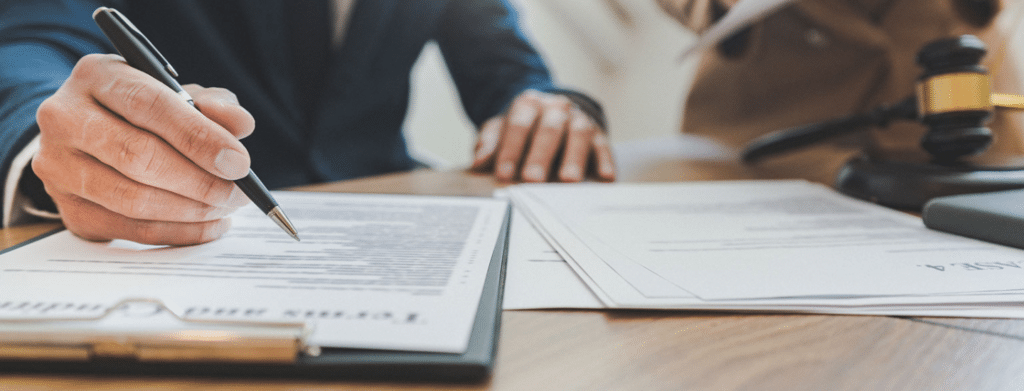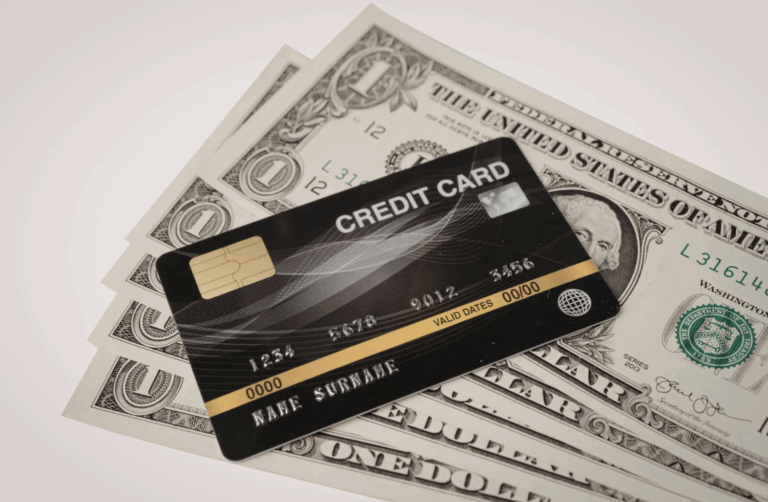Being served with a credit card debt lawsuit can be scary and stressful. However, responding to the lawsuit is important so you can avoid even greater financial challenges. Of course, you may not know how to respond to court summons for credit card debt.
Read on to learn what happens when a creditor sues you and how to respond appropriately. By following the right steps, you can minimize the negative consequences of a lawsuit and resolve your credit card debt once and for all.
What Happens When You’re Sued for Credit Card Debt?
You can’t be arrested or go to jail over credit card debt. But you can be sued by a credit card company or debt collection agency. This generally happens when you’ve been delinquent on your debt for a long time. It’s a last resort option for creditors and debt buyers/collectors to recover your debts.
Suppose a creditor decides to sue you for unpaid credit card debt. In that case, you’ll receive a notification in the form of a summons and complaint from the creditor or a debt collection agency representing the creditor. This document outlines the legal claim against you, including the amount owed and the reason for the lawsuit.
You’ll have a specified amount of time to respond to the lawsuit (usually around 20-30 days, depending on the jurisdiction). If you fail to respond before your court date, the court may enter a default judgment against you, which can lead to wage garnishment, bank account levies, or other enforcement actions. that’s why it’s crucial that you learn how to respond to a court summons for credit card debt and do so ASAP.
Key takeaway: Responding to a credit card debt lawsuit promptly is crucial. Failing to respond by the deadline can result in losing the case, which has dire consequences for your finances.
How to Respond to a Court Summons for Credit Card Debt
Once you receive a court summons and complaint, it is important to take action immediately. Follow these steps to ensure the best outcome possible.
Read the summons carefully
Start by carefully reviewing the documents you received. The summons will provide important information such as the response deadline, the court where the lawsuit was filed, and the case number. The complaint will detail the claims against you, including the amount owed and the basis for the lawsuit.
Now is a good time to collect any documents related to your credit card debts, such as billing statements, correspondence with the lender, and any previous agreements or payment arrangements. These documents may be helpful when preparing your response.
Hire an Attorney
The process for navigating a lawsuit can be quite complex. Not to mention, there’s a lot on the line when you’re sued over credit card debt. So the last thing you want is to make a mistake and end up with a judgment against you or agree to something you don’t fully understand.
An attorney experienced with consumer debt issues can provide valuable legal advice and help you evaluate the lawsuit and your potential next steps. They can develop a solid defense and assist you in navigating various court processes. They can also employ affirmative defenses if you’re being sued for a debt that’s time-barred by the statute of limitations or if the debt collector has violated the Fair Debt Collection Practices Act (FDCPA). Be sure that when hiring an attorney, you work with a law firm that has proven results in helping others navigate credit card and other debt-related lawsuits.
Submit your response
The summons package you received will be a complaint that lists all of the allegations against you. You need to “answer” these allegations in writing and submit them to the court before the deadline listed.
Your response to each allegation can generally take one of the following forms:
- Affirm: To affirm an allegation means to agree with or admit to the truth of the statement in the complaint. By affirming, you essentially acknowledge that the allegation is accurate and not disputing it. This may affect the rest of the case, as it could weaken your defense.
- Deny: To deny an allegation means to disagree with or dispute the statement in the complaint. By denying, you are challenging the accuracy or truthfulness of the allegation and asserting that it is incorrect. This puts the burden on the plaintiff (the party who filed the lawsuit) to prove the truth of the allegation.
- Lack of knowledge: In some cases, you may not have enough information to either affirm or deny an allegation. In this situation, you can reply with a lack of knowledge, indicating that you cannot accurately affirm or deny the statement due to insufficient information. This response essentially puts the burden on the plaintiff to provide evidence to support the allegation.
It’s important to note that your answer should be truthful and based on your best knowledge of the facts. Providing false or misleading information on your answer form can have serious consequences, including potential sanctions from the court.
Using Admission With Defense
An “admission with defense” is a legal strategy used when responding to a lawsuit. In this context, “admission” means acknowledging certain facts or elements of the plaintiff’s claim against you. At the same time, “defense” refers to your reasons or justifications for contesting the claim or seeking to reduce your liability.
When you use an admission with defense, you’re effectively saying, “Yes, some of the facts presented by the plaintiff are accurate, but there are circumstances, legal arguments, or additional facts that mitigate my responsibility or liability.”
Here’s a simplified example in the context of a debt collection lawsuit:
- Admission: You acknowledge that you took out a loan with the original creditor and had a balance of $5,000.
- Defense: You claim that you paid off $2,000 of the balance before the account went into collections. Therefore, you should only be held responsible for $3,000.
By using an admission with defense, you may be able to reduce your liability or present a stronger case in court.
File Your Response With the Court
Once you have crafted your answer, it’s time to submit it to the court. You may need to pay a filing fee, which can vary by jurisdiction. If you cannot afford the fee, you may be able to request a waiver.
You’ll also need to provide a copy of your answer to the plaintiff (the creditor or their attorney). This is known as the “service of process.” Follow the court rules and procedures of your jurisdiction to ensure proper service. Again, your attorney can help you with these steps.
Remember to retain copies of all documents you file with the court and any correspondence with the creditor or attorney.
Key Takeaway: Knowing how to respond to a court summons for credit card debt is crucial. Hiring an experienced attorney to help craft a response and submit it on time is important. Keep records of all correspondence in case there are any issues down the road.
Settling Credit Card Debt to Avoid Court
It is possible to avoid a credit card lawsuit by offering to settle the debt instead. Creditors are often open to negotiating a settlement since accepting a reduced payment or payment plan is generally more cost-effective than going through the lengthy and costly legal process.
How Does Debt Settlement Work?
Settling credit card debt means coming to an agreement with your creditor to pay off your outstanding balance for less than the full amount owed. Typically, this involves negotiating a reduced lump sum or a series of payments the creditor accepts as a full settlement of your debt.
Debt settlement is often considered when a borrower cannot keep up with minimum monthly payments or when the outstanding balance has become unmanageable due to high interest rates, fees, and penalties. Settling the debt can provide relief for the borrower and allow the creditor to recoup at least a portion of the outstanding balance.
Pros and Cons of Debt Settlement
However, it’s important to note that debt settlement can have some negative consequences. For one, settling a debt for less than the full amount owed can cause your credit score to drop. That’s because it indicates you didn’t fulfill the original terms of your credit agreement. Sometimes, the forgiven portion of your settled debt may also be considered taxable income. If so, you must pay taxes for that year’s full amount.
Even so, the benefits of ridding yourself of credit card debt and avoiding a lawsuit often far outweigh these short-term drawbacks. Again, it’s recommended that you consult with an attorney to determine whether debt settlement is the right course of action. Your attorney can also negotiate with creditors and their legal teams on your behalf, ensuring that you receive the best possible outcome that fits your budget.
Key Takeaway: Debt settlement is one alternative to fighting a credit card debt lawsuit. If you are far behind on payments and don’t have the means for full debt repayment, your creditor may agree to accept a lower amount than the total owed to avoid spending time and resources on court proceedings.
Call Tayne Law Today
Tayne Law Group is a New York-based debt relief law firm. We’ve been helping clients resolve their debts for more than 20 years. We offer a free, no-obligation phone consultation so you can talk with one of our experienced staff members to learn your options. And you don’t have to worry about paying a dime unless you decide to hire our services. Call our firm today at (866) 890-7337 or fill out our short contact form for a consultation. We never share or sell your information, and all calls are confidential.





